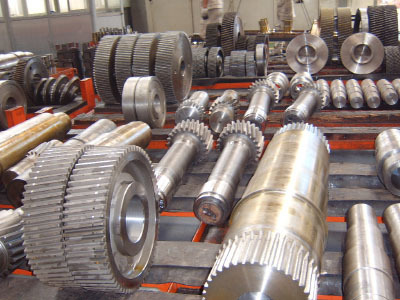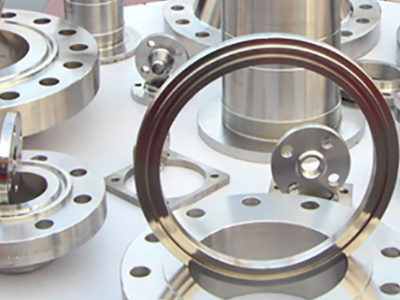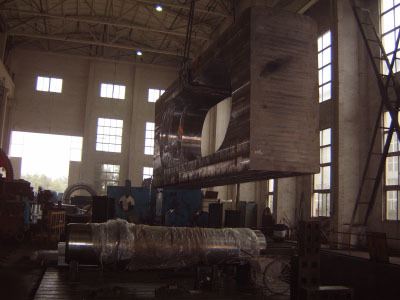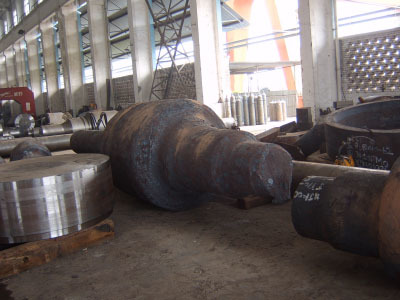Understanding Large Forged Gears for Oil Industry Applications
Release Time:
Aug 12,2025
Large forged gears play a crucial role in the oil industry by providing the strength and durability required for various applications, including drilling, extraction, and refining processes. These gears are typically used in heavy machinery, such as pumps, compressors, and turbines, which are integral to the oil extraction and processing operations. The unique demands of the oil industry necessita

Large forged gears play a crucial role in the oil industry by providing the strength and durability required for various applications, including drilling, extraction, and refining processes. These gears are typically used in heavy machinery, such as pumps, compressors, and turbines, which are integral to the oil extraction and processing operations. The unique demands of the oil industry necessitate the use of gears that can withstand extreme conditions, including high temperatures, variable loads, and corrosive environments.
The manufacturing of large forged gears involves the process of forging, which enhances the mechanical properties of the material. During forging, metal is heated and shaped through mechanical force, resulting in a material with improved density and structural integrity. This process is critical as it allows the gears to endure high levels of stress and offer enhanced fatigue resistance. The final product is typically made from high-strength alloys that are tailored to meet the rigorous demands of oil industry applications.
One of the key advantages of large forged gears is their ability to accommodate heavy loads and provide reliable performance over an extended period. In applications such as oil drilling rigs, the gears must reliably transmit power to various components, ensuring that operations run smoothly and efficiently. Any failure in these gears can lead to significant downtimes and costly repairs, emphasizing the importance of quality and durability in gear production.
Moreover, large forged gears are often customized to meet specific operational requirements. This customization can involve adjustments in size, tooth design, and materials used, allowing for optimal performance in particular applications. For instance, gears used in offshore drilling platforms may require special coatings to resist corrosion from seawater, while those used in refineries may need to withstand high temperatures resulting from processing crude oil.
In addition to their mechanical properties, large forged gears must also comply with industry standards and regulations, ensuring they meet the safety and performance expectations set forth by governing bodies. This compliance not only aids in maintaining operational integrity but also fosters a culture of safety within the oil industry.
In summary, large forged gears are indispensable components in the oil industry, engineered to handle the challenges posed by demanding applications. Their robust construction and ability to be tailored to specific needs make them vital in maintaining the efficiency and safety of oil extraction and refining operations. Understanding their significance and the manufacturing process can help industry professionals make informed decisions about their usage in various applications.
The manufacturing of large forged gears involves the process of forging, which enhances the mechanical properties of the material. During forging, metal is heated and shaped through mechanical force, resulting in a material with improved density and structural integrity. This process is critical as it allows the gears to endure high levels of stress and offer enhanced fatigue resistance. The final product is typically made from high-strength alloys that are tailored to meet the rigorous demands of oil industry applications.
One of the key advantages of large forged gears is their ability to accommodate heavy loads and provide reliable performance over an extended period. In applications such as oil drilling rigs, the gears must reliably transmit power to various components, ensuring that operations run smoothly and efficiently. Any failure in these gears can lead to significant downtimes and costly repairs, emphasizing the importance of quality and durability in gear production.
Moreover, large forged gears are often customized to meet specific operational requirements. This customization can involve adjustments in size, tooth design, and materials used, allowing for optimal performance in particular applications. For instance, gears used in offshore drilling platforms may require special coatings to resist corrosion from seawater, while those used in refineries may need to withstand high temperatures resulting from processing crude oil.
In addition to their mechanical properties, large forged gears must also comply with industry standards and regulations, ensuring they meet the safety and performance expectations set forth by governing bodies. This compliance not only aids in maintaining operational integrity but also fosters a culture of safety within the oil industry.
In summary, large forged gears are indispensable components in the oil industry, engineered to handle the challenges posed by demanding applications. Their robust construction and ability to be tailored to specific needs make them vital in maintaining the efficiency and safety of oil extraction and refining operations. Understanding their significance and the manufacturing process can help industry professionals make informed decisions about their usage in various applications.
多行文本内容元素
富文本内容绑定数据后可解析HTML语言内容
Key words:
News Hotspot










